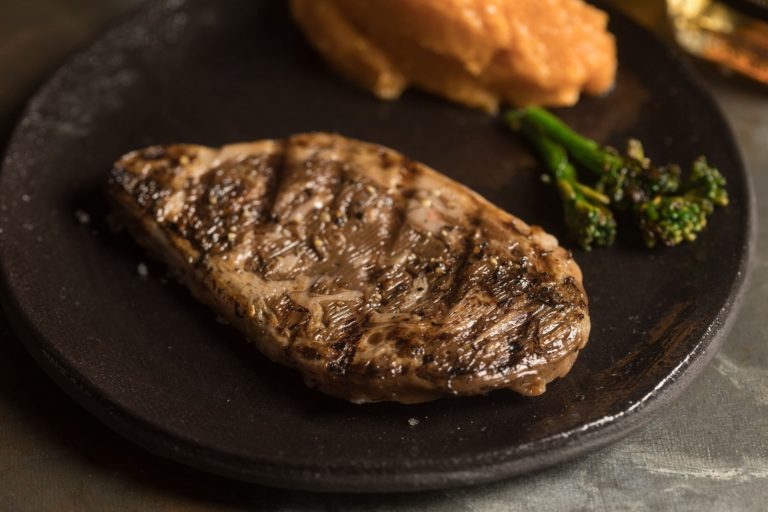
An Israeli company, Aleph Farms Ltd. and its research partner at
the Technion’s Faculty of Biomedical Engineering have successfully cultivated the world’s first slaughter-free rib eye steak.
Aleph is using three-dimensional (3D) bioprinting technology and natural building blocks of meat – real cow cells, without requiring genetic engineering.
The company claims that the steak replicates the feeling of a soft, tasty and juicy steak both in its external appearance and in its taste and smell. Didier Toubia, the CEO of Aleph farms, said that “these new products will have a very significant effect in the long term.”
Aleph Farms is a food company trailblazing new horizons as a leader of the global sustainable food ecosystem. It woks to grow delicious beef steaks from non-genetically engineered cells isolated from a cow, using a fraction of the resources required for raising an entire animal for meat, without antibiotics and without the use of Fetal Bovine Serum(FBS).
Unlike regular 3D printing technology, Aleph Farms’ 3D bioprinting technology prints living cells which are then incubated to grow, differentiate, and interact, in order to acquire the texture and qualities of a real steak. A parallel system, similar to the vascularization that occurs naturally in tissues, enables the perfusion of nutrients across the thicker tissue and grants the steak the similar shape and structure of its native form as found in livestock before and during cooking.
Toubia says that “This breakthrough reflects an artistic expression of the scientific expertise of our team. I am blessed to work with some of the greatest people in this industry. We recognize some consumers will crave thicker and fattier cuts of meat. This accomplishment represents our commitment to meeting our consumer’s unique preferences and taste buds, and we will continue to progressively diversify our offerings.”
“Toubia added that “this milestone for me marks a major leap in fulfilling our vision of leading a global food system transition toward a more sustainable, equitable and secure world.”
The cultivated ribeye steak is a thicker cut than the company’s first product first produced in 2018 – but also incorporates new technologies enabling it to replicate the look and taste of a regular animal steak.
“With the realization of this milestone, we have broken the barriers to introducing new levels of variety into the cultivated meat cuts we can now produce. As we look into the future of 3D bioprinting, the opportunities are endless,” says Technion Professor Shulamit Levenberg, Aleph’s Co-Founder and Chief Scientific Advisor.
Levenberg is considered a global leader in tissue engineering and has amassed over two decades of research in the field at the Massachusetts Institute of Technology (MIT), in the United States and at the Technion, in Israel. Levenberg is also the former Dean of the Biomedical Engineering Faculty at the Technion.
Aleph Farms’ plans to diversify its food offerings align with its mission to create a global platform for local production, employing a highly versatile technology to create culinary experiences that can be adapted for different food cultures around the world.
Last year a special conference at the Torah and Technology center of the Jerusalem College of Technology discussed whether a lab-grown burger would be deemed fleishig (meaty) for halachic purposes or whether it is kosher at all, since the cells were extracted from a living animal and could be prohibited on that basis.
The matter has been discussed extensively in recent editions of the Techumin halachic compendiums, with an article by Rabbi Zvi Reisman maintaining that it is kosher, whereas Rabbi Yaakov Ariel, the rabbi of Ramat Gan, disagreed.
Some have suggested using the cells from a Ben Pekuah which is considered in its lifetime as if it is already slaughtered. (A Ben P’Kuah or BP is an unborn calf that is found in the womb of its mother that was just slaughtered. The Gemorah in Chullin 69a states that such a foetus does not require its own slaughter).
(Vosizneias).